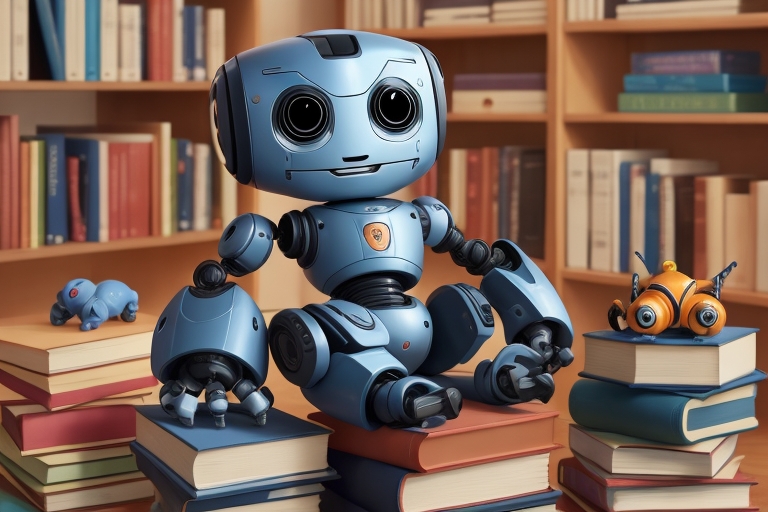Scientists are working on a much more serious project than it seems: robots that laugh

- September 27, 2022
- allix
- AI Projects
On JV Tech, we often talk to you about robots or androids that could soon replace us on a daily basis. But some scientists are working on other aspects of robotics, and the least we can say is that it’s quite disturbing.
Knowing when to laugh and what laughter to use depending on the circumstance is not an easy task. Especially if we are surrounded by people. It is necessary to correctly interpret the context and, in the event that we are talking to one or more people, the conversation itself. We have internalized this concept so much that we often forget the number of nuances that influence it, yet it is not that simple.
A team from Kyoto University has set itself the ambitious goal of giving robots the ability to laugh when and how they should. To achieve this, they taught an artificial intelligence (AI) system the “art of laughter” during conversations with humans. A far from an easy task for which they collected data from more than 80 conferences in which students and AI participated. A project that Japanese scientists have dubbed “Erica”.
To laugh or not to laugh, that is the question
The experiment served to accumulate information about lonely laughs – that funny joke you suddenly remember, in silence – and those that occur when interacting with other people. Among the latter, they distinguished laughter of joy from other laughter caused by less obvious reasons, such as embarrassment, nervousness, or a simple question of courtesy. With such experience, the Japanese team was dedicated to training Erica, teaching her the two fundamental keys to the process: when to laugh and how to do it.
“Our biggest challenge has been to identify the real cases of shared laughter. It’s not easy because, as you know, most laughs aren’t shared at all.”, explains Dr. Koji Inoue of Kyoto University to The Guardian. The task seems anything but fun, as the Doctor and his colleagues had to categorize the laughs, choosing which ones were worth investigating.
It’s a fairly logical reflection after all, since after all, you can’t always respond to a smile with a smile. For example, imagine that the person in front of you is laughing in shame. If you imitate him or her, he or she will think you are making fun of him or her.
Why endow robots with laughter?
The question we could ask ourselves at this point is: why? What exactly are scientists at Kyoto University looking for? Why would you want to teach robots the art of laughing?
In fact, the answer is quite simple: design a more natural AI, with greater capacity for interaction. ” We believe that one of the important functions of conversational AI is empathy – points out Dr. Koji Inoue to the British newspaper – So we decided that one of the ways for a robot to sympathize with users was to share their laughter. »
Does that mean we’re one step closer to sharing jokes with a humanoid robot? The Japanese team thinks, in this regard, that laughter could be used to design robots with a particular character. Sure, Doctor Koji Inoue guesses it will be decades before we can chat with a robot as we do with a friend. Others simply prefer to think that an AI will never understand humans. We conclude this article by asking you the following question: what would be your reaction to a robot that laughs instinctively in a conversation?
Categories
- AI Education (33)
- AI in Business (58)
- AI Projects (80)
- Research (53)
Other posts
- Meta Introduced Llama 3 LLM
- Caffe – A Deep Learning Powerhouse
- The Study Reveals The Potential Of Artificial Intelligence To Take Over Key Management Functions In Scientific Research
- eBay Introduces New AI-Driven ‘Shop the Look’ Functionality to Its iOS Application
- Brave Releases Ai Assistant for iPhone and iPad Users
- Introduction to MXNet
- The Quiet-STAR Algorithm, Which Allows Chatbots To Think About Answers Before Responding
- Orchard’s Vision System Transforms Agricultural Machinery Into Ai-Powered Data Collection Tools
- Deepmind Introduces Genie – An Artificial Intelligence That Creates 2d Game Environments From A Single Image
- Microsoft Cognitive Toolkit (CNTK)
Newsletter
Get regular updates on data science, artificial intelligence, machine



